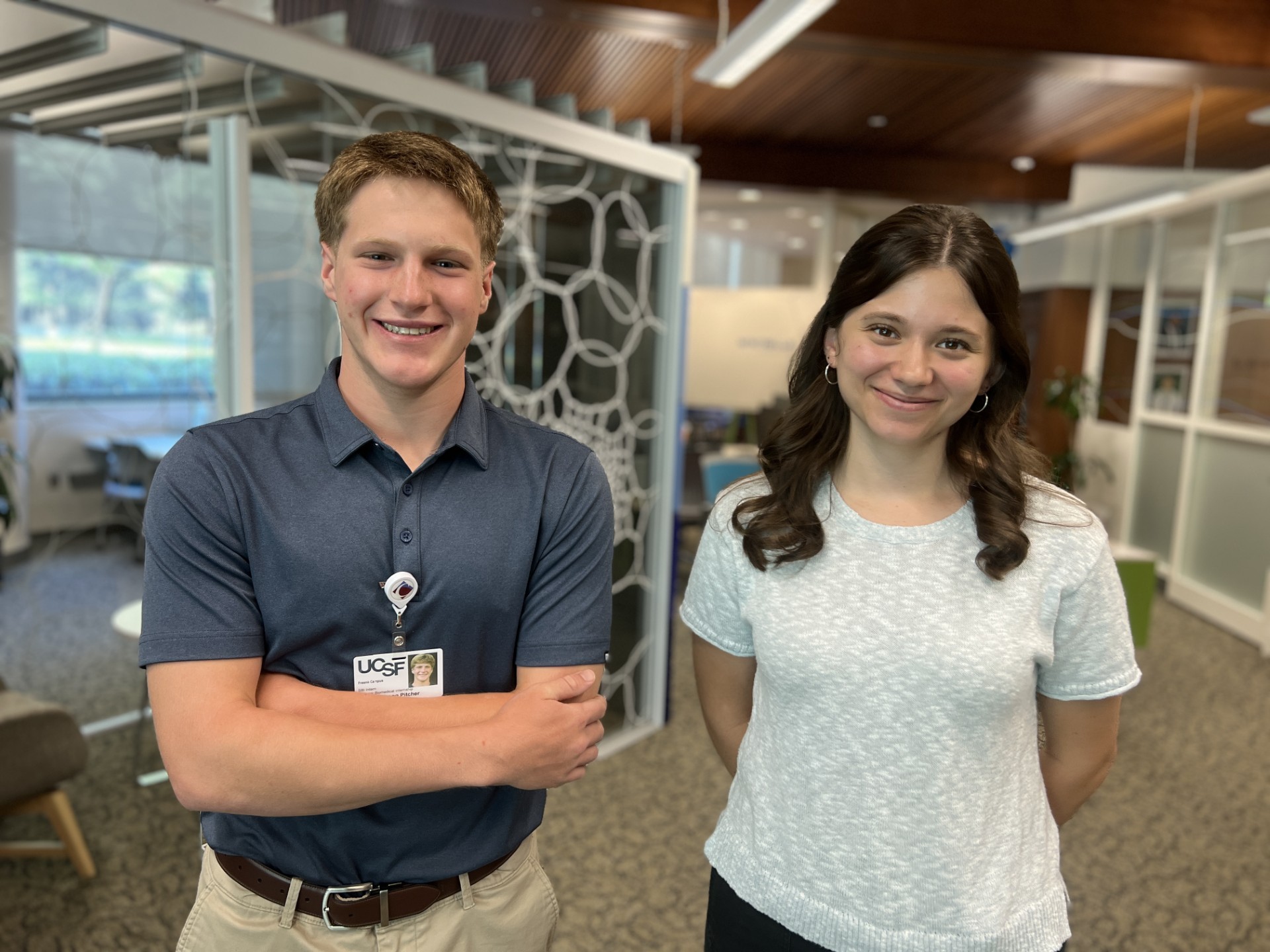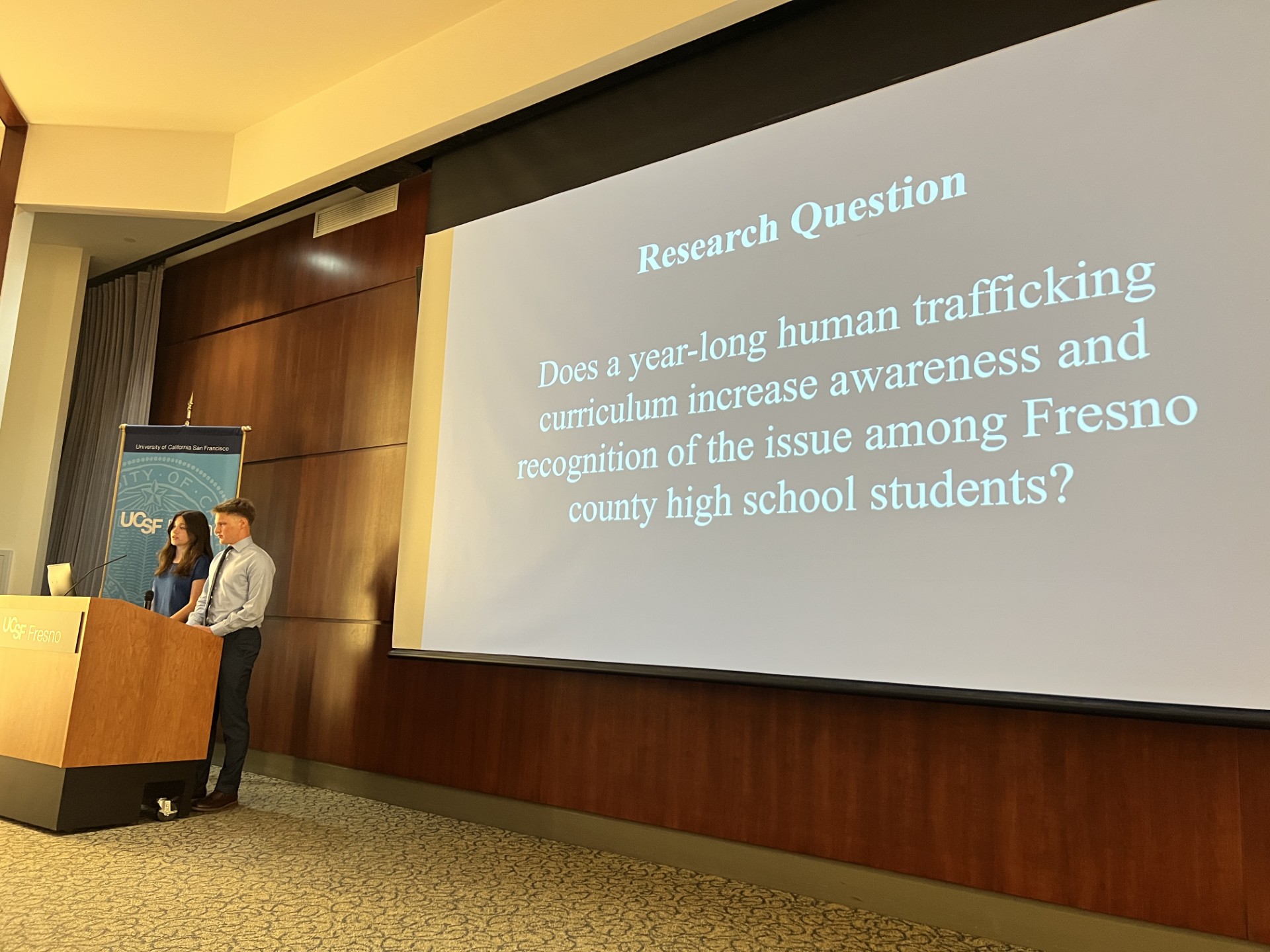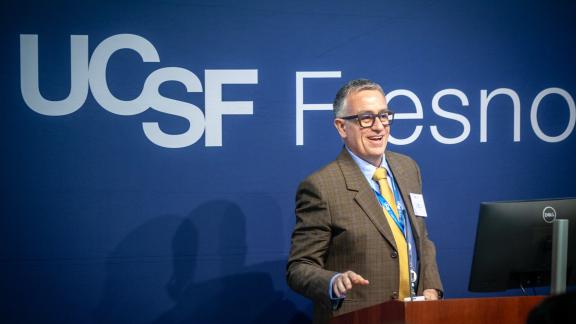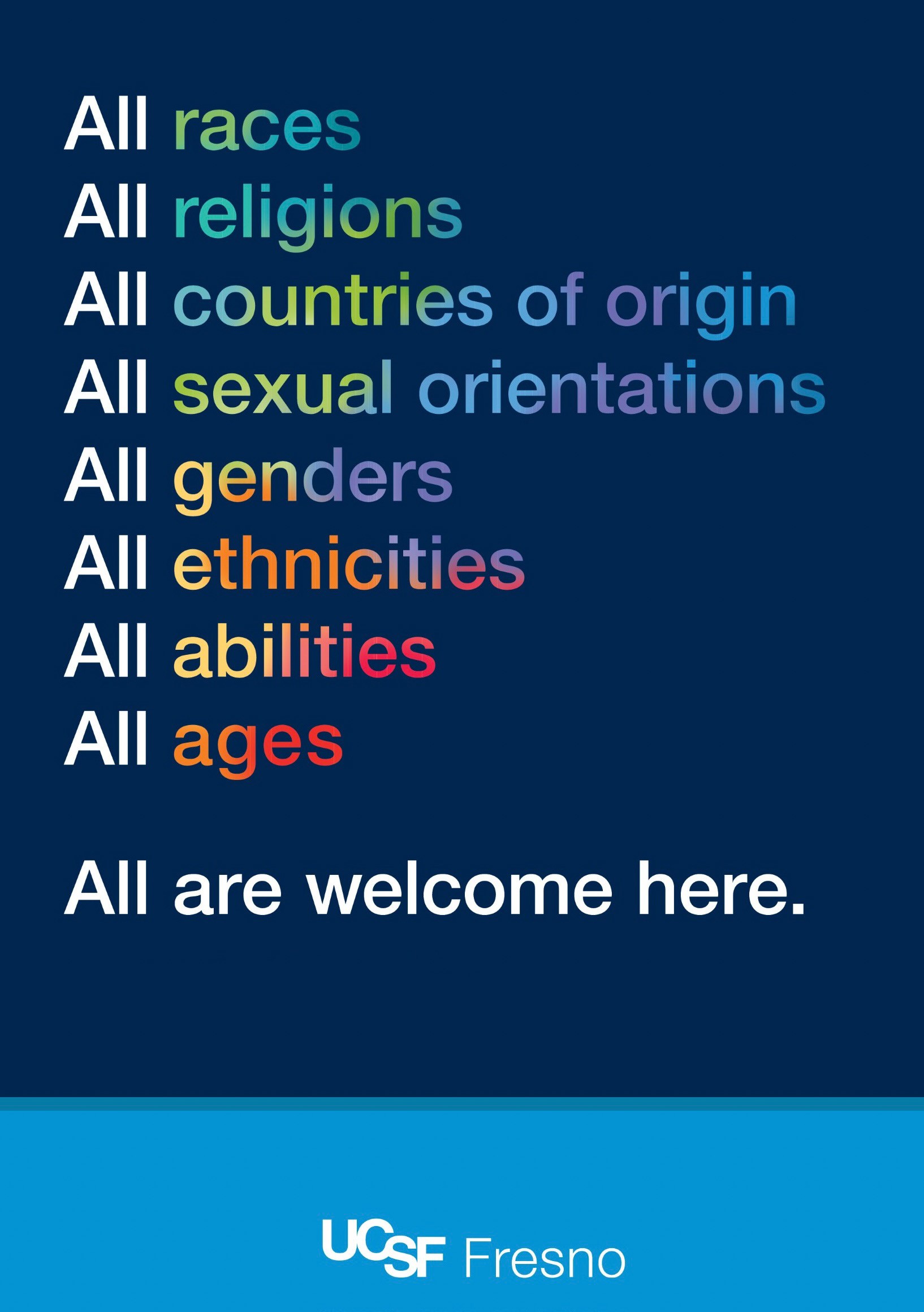
Earlier this year, 31 people were arrested for human trafficking during a multi-agency operation in Fresno. Currently, law enforcement agencies are preparing to enforce a new California law (AB 379) starting in January 2026 that makes it a felony to purchase a minor for sex, makes more resources available for survivors, and stiffens penalties for loitering with the intent to purchase sex. Meanwhile, faculty and medical residents at UCSF Fresno, along with community organizations, and two students in the UCSF Fresno Summer Biomedical Internship Program, are doing their part to fight trafficking.
The health consequences of human trafficking are concerning. Some data suggests that the average life expectancy for victims after entering human trafficking is seven to 10 years. Various studies show that a high percentage of human trafficking victims access health care while being exploited. Yet, their exploitation often goes undetected. More awareness and education are needed among young people, educators, and health care providers to recognize the warning signs of human trafficking and where to find help, support, and information.

During a six-week SBI internship research project, Fresno County students Sophia Church and Mason Pitcher, under the guidance of Renee Kinman, MD, PhD, MAEd, UCSF clinical professor, and Christine Nelson, MD, Chief of Pediatrics at UCSF Fresno, developed a curriculum to educate local students about human trafficking. With assistance from the Central Valley Justice Coalition and UCSF Fresno Pediatric residents Victoria Ford, MD, and Sanjana Bolleddu, DO, the SBI interns set out to answer the research question: Does a year-long human trafficking curriculum increase awareness and recognition among Fresno County high school students? The six-week project has evolved into a year-long effort that aims to educate and protect students from human trafficking.
“Fresno’s geographic area just between LA and Sacramento, right next to the 99, makes it a hub for human trafficking,” said Pitcher. “And the amount of poverty we have here can make labor exploitation prominent. Getting kids educated is important.”
Pitcher and Church further developed a curriculum started by the Justice Coalition, which includes topics such as social media and exploitation, online safety, health relationships, dating violence, labor exploitation, immigration and trafficking, trafficking in Fresno, and misogyny. They conducted a pilot pre-survey and plan to implement a larger assessment next year after students have participated in the curriculum.
“We did a pre-assessment, and some of the statistics of what the students already knew about human trafficking were really concerning,” said Church. “Like they couldn't recognize the most common type of trafficking or the most common type of trafficker, and there were other things that were concerning that teens should definitely know and be aware of.”
Their project is designed to complement a law passed in California in 2017 (AB 1227), which calls for schools to offer education on human trafficking in grades 7-12 to prevent children from being exploited.
“What’s the best way to teach high school students these topics? Their peers,” said Dr. Kinman, a pediatric endocrinologist who was honored in 2022 by the Fresno Compact for her work with the Fresno County Office of Education and Fresno Unified School District on pathway programs for students interested in careers in health and medicine.
Conducting research for the project was an eye-opening experience for the students. They worked with the UCSF Fresno pediatric residents and volunteered with the Justice Coalition to develop a better understanding.
“There’s a common misconception that it only happens to a very specific type of person, usually a girl,’ said Church. “But it's not true at all. Human trafficking happens in all kinds of communities. And that's something that teenagers aren’t aware of.”
 The 32-week curriculum designed by Church and Pitcher focuses on a different topic each week with a lesson plan that includes materials, a video, and a student action activity to increase student awareness about human trafficking, provide safety strategies, and help students better comprehend and recall lessons learned.
The 32-week curriculum designed by Church and Pitcher focuses on a different topic each week with a lesson plan that includes materials, a video, and a student action activity to increase student awareness about human trafficking, provide safety strategies, and help students better comprehend and recall lessons learned.
“In this day and age, online safety is important, like keeping an Instagram account private. If it's your personal account, not responding to messages from people you don't know, and not meeting up with people you don't know,” said Pitcher.
A single text message exchange can turn into a human trafficking situation, according to Dr. Kinman.
“Another big point is it’s often a family member who traffics people, especially children and teens,” added Church. “For parents, it’s making sure they have their kids surrounded by adults who they can trust and who should be close to their kids, and for good reason. And for teens, to be able to recognize when a situation is not OK. A lot of times, it’s a slow build of trust, and then it becomes a trafficking situation.”
Pitcher also pointed out “survival sex” where people sell their bodies to make ends meet.
Church and Pitcher completed the curriculum in Google Classroom and discussed their work at the UCSF Fresno SBI Presentation of Projects in August. Next steps include making the curriculum broadly available online through an educational or community partner, working with school districts and schools to implement the curriculum and follow-up assessments over the coming school year, with research findings to be presented next year.
“Human trafficking victims are showing up in emergency rooms. They’re showing up in clinics and schools,” said Dr. Kinman. “A multifaceted community outreach approach is needed to educate students, and at the same time, there must be awareness among educators and health professionals to address this serious health problem.”
Dr. Bolleddu said there are plans to extend the curriculum to Pediatric residents in the future.
UCSF Fresno’s Summer Biomedical Internship Program was established in 1988 to introduce high school students from Fresno, Kings, Madera, Mariposa, Merced, and Tulare counties to careers in health and medicine and provide them with quality health research experience. The program matches selected rising high school seniors with faculty at UCSF Fresno who are conducting or developing research projects.




